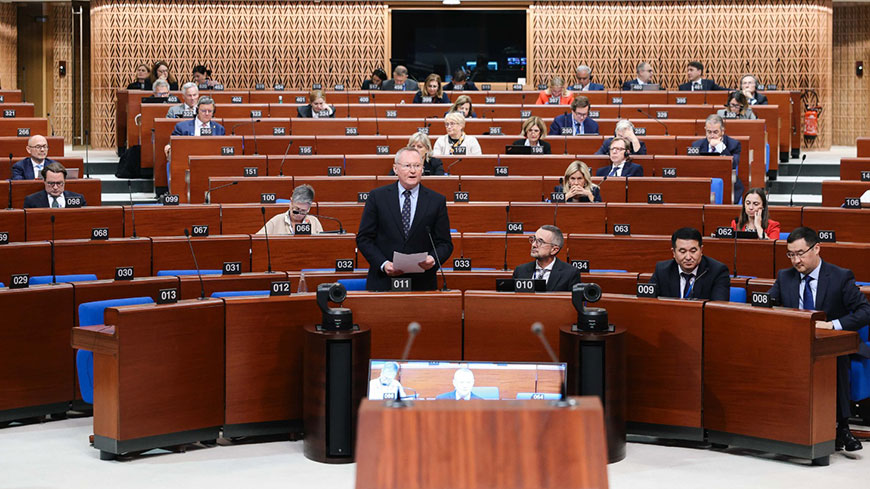Speech by Michael O'Flaherty, Council of Europe Commissioner for Human Rights, delivered at the Joint debate of the Parliamentary Assembly of the Council of Europe on “Missing migrants, refugees, and asylum seekers – A call to clarify their fate”and “A shared European approach to address migrant smuggling”. A longer version of this speech was delivered at the Committee on Migration, Refugees and Displaced Persons of the Parliamentary Assembly of the Council of Europe earlier on the same day.
Thank you Mr President,
I greatly appreciate the invitation to return to the plenary and I thank you and the honourable members for the welcome.
Since taking up the mandate of Commissioner, I've spent a considerable amount of time engaging on migration issues. I've spent much of that time visiting walls, new walls, higher walls, along our borders. I've witnessed and I've argued against the repudiation of law, and I've observed with increasing concern the issue of renegotiating treaties.
There is a common theme running through these manifestations and that is to make our borders and our countries more secure. I would argue that it is a dangerous and misguided direction for at least three reasons.
First, this toughening of border policy does not serve its stated purpose. At least in the medium term, it makes the smugglers more daring, it makes them more dangerous, more ruthless, and equally effective.
Second, this model of securitisation posits a zero-sum game between human rights and security, which is wrong. A migration policy that respects human rights is a better migration policy. Predictable, fair, trustworthy.
Third, strategies that lead to violations of international law are corrosive to the rule of law.
What would a human rights compliant refugee, migration and border policy look like?
It would have at least five elements which I will present to you briefly, starting with the topics of the two reports before you.
First, on the matter of curbing smuggling, which is a vital task, the smugglers must be treated as the criminals that they are. But I would also urge that we pay attention to the root cause of smuggling, which is the lack of safe and legal pathways for migrants and for their protection claims to be considered.
Second, we must be very careful in our cooperation with third countries in the context of efforts to curb smuggling. Just look at the situation some EU countries have found themselves in regarding cooperation with countries such as Libya and Tunisia.
Third, let us avoid the criminalisation of humanitarian action, by insisting that any definition of smuggling be the one contained in the Palermo Protocol.
Finally, about criminalisation, for goodness’ sake, let’s avoid the temptation to criminalise smuggled people.
On the issue of missing migrants, I'd like to focus on the prevention of disappearances. Again, safe and legal pathways are integral to prevent deaths at sea and elsewhere. And second, speaking of the sea, we have got to enhance search and rescue capacity.
Frankly, it is a disgrace to our countries collectively and individually that we do not have the capacity in the Mediterranean to rescue people at risk of drowning.
Turning to other areas, once people arrive, it is vital that we give them a meaningful opportunity to apply for international protection and that we provide them with an individualised determination of their case. In this context, I do not feel the need to debate pushbacks because for me it is clear: Pushbacks are an intolerable and egregious violation of the law.
Fourth, we need to ensure decent reception conditions. We can do that. Many of the problems we encounter in terms of overcrowding, inadequate facilities and poor care are of our own making, because we have put the reception facilities in the wrong places for tactical reasons. We put them in remote locations, and we crowd them into single places where resources are stretched. All such problems are easily avoidable.
Fifth and finally, I would strongly encourage our member states to consider setting up independent human rights monitoring systems at the borders. Where this has been tried, it has been found to be useful and effective in terms of reducing the allegations of abuse and generally, enhancing trust in the systems.
Time is short, so I'll conclude here by borrowing the words of arguably the world's most powerful advocate for better migration policies, Pope Francis. In a recent speech, he reminded us that migration cannot be managed through stricter laws or the militarisation of borders. Instead, he said, it requires justice, fraternity, and solidarity.
Thank you.



